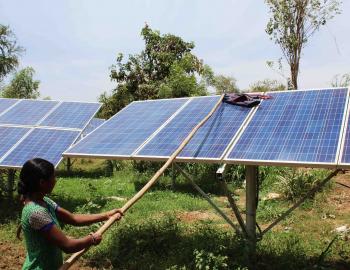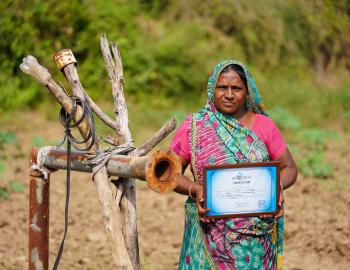Case Study: Scaling-up solar PV in water supply services in Rajkot, India
Case Study: Scaling-up solar PV in water supply services in Rajkot, India
This case study showcases how the installation of solar photovoltaic (PV) panels at a water treatment plant in Rajkot has reduced greenhouse gas emissions and inspired the municipality to scale-up in other parts of the city.
Cities represent almost two-thirds of global energy demand, accounting for almost 70 percent of energy-related greenhouse gas emissions that contribute to climate change. Water supply services in particular can be highly energy intensive. In Rajkot, an industrial city in the state of Gujarat in western India, water supply accounted for 61 percent of all municipal electricity consumption from 2015-16.
The Rajkot Municipal Corporation installed PV panels at the Aji water treatment plant, providing nearly one-fifth of the plant’s power needs. Following this success, the municipality has commissioned a study to assess the feasibility of using solar PV systems in other water treatment plants in Rajkot, and is currently developing a project for two water treatment and two sewerage plants.
Key messages of this case study include:
- There is significant potential to reduce greenhouse gas emissions in the highly intensive water-supply sector in India.
- Highlighting the economic and mitigation benefits of renewable energy has contributed to scale up. Real-time monitoring of the solar PV system through online software allowed the project to quantify monetary savings and make the ‘business case’.
- Showcasing successful emissions reductions caught the attention of the municipal corporation and encouraged them to replicate.
- Co-financing the installation led to greater accountability and ownership by the municipality and ensured proper operation and maintenance, and therefore enhanced potential for sustainability.



